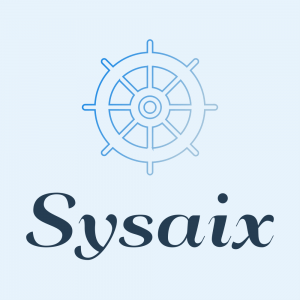
What is Kubernetes?
Kubernetes is an open-source container orchestration system for automating the deployment, scaling, and management of containerized applications. It was developed by Google and is now maintained by the Cloud Native Computing Foundation (CNCF). Kubernetes has a number of features and capabilities that make it useful for managing containerized applications in production environments, including:
- Deployment and management of containerized applications using declarative configuration files
- Automatic scaling of applications based on load
- Load balancing and service discovery
- Health checking and self-healing of applications
- Rollout and rollback of updates
What is the advantages of Kubernetes?
Kubernetes has a number of advantages that make it a popular choice for managing containerized applications in production environments:
- Automation: Kubernetes automates the deployment, scaling, and management of containerized applications, which can save time and reduce the risk of errors compared to manual processes.
- Flexibility: Kubernetes allows you to deploy and manage applications on a variety of platforms, including on-premises infrastructure, public cloud platforms, and hybrid environments.
- Scalability: Kubernetes provides automatic scaling of applications based on load, which makes it easy to scale applications up or down as needed.
- High availability: Kubernetes provides built-in health checking and self-healing capabilities, which can help ensure the availability of applications.
- Portability: Kubernetes allows you to deploy applications in a consistent way across different environments, making it easier to migrate applications between environments.
- Ecosystem: Kubernetes has a large and active community of users and developers, which has led to the development of a rich ecosystem of tools and resources that can be used with Kubernetes.
- Integration: Kubernetes integrates with a variety of tools and technologies, including monitoring, logging, and continuous integration/continuous delivery (CI/CD) systems, which can make it easier to manage applications in production environments.
Where are the Kubernetes usage areas?
Kubernetes is a popular container orchestration system that is widely used for automating the deployment, scaling, and management of containerized applications in production environments. Some common use cases for Kubernetes include:
- Microservices: Kubernetes is often used to manage distributed applications that are built using microservices architecture, as it provides features such as service discovery and load balancing that can help make it easier to manage and scale these types of applications.
- Cloud-native applications: Kubernetes is often used to deploy and manage cloud-native applications, which are designed to be deployed in cloud environments and use cloud-native technologies such as containers and microservices.
- Continuous integration and delivery (CI/CD): Kubernetes can be used as part of a CI/CD pipeline to automate the deployment and management of applications in test and production environments.
- Big data and analytics: Kubernetes can be used to deploy and manage applications that process large amounts of data, such as data warehouses and analytics platforms.
- Internet of Things (IoT): Kubernetes can be used to manage applications that run on devices in the Internet of Things, such as sensors and smart devices.
- Serverless computing: Kubernetes can be used to deploy and manage applications that use serverless computing platforms, such as AWS Lambda or Google Cloud Functions.
These are just a few examples of the many ways that Kubernetes can be used. Its flexibility and wide range of features make it a popular choice for managing containerized applications in a variety of different contexts.







